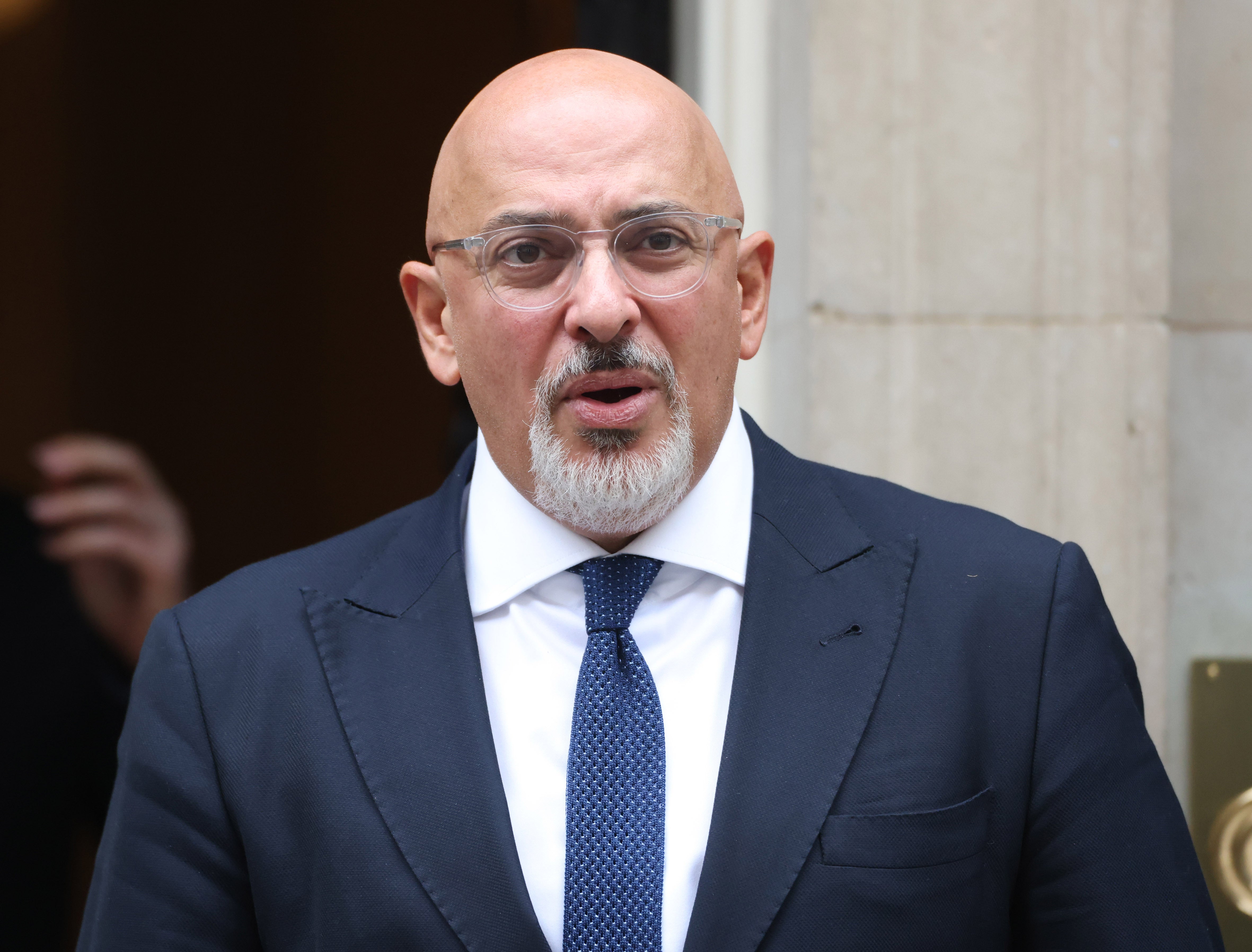By all means teach children about politics – just don’t be nasty to the Tories
Tory MPs are criticising a school in Nottingham for asking pupils to write letters to their local MP about ‘Partygate’ – funny, that


Your support helps us to tell the story
From reproductive rights to climate change to Big Tech, The Independent is on the ground when the story is developing. Whether it's investigating the financials of Elon Musk's pro-Trump PAC or producing our latest documentary, 'The A Word', which shines a light on the American women fighting for reproductive rights, we know how important it is to parse out the facts from the messaging.
At such a critical moment in US history, we need reporters on the ground. Your donation allows us to keep sending journalists to speak to both sides of the story.
The Independent is trusted by Americans across the entire political spectrum. And unlike many other quality news outlets, we choose not to lock Americans out of our reporting and analysis with paywalls. We believe quality journalism should be available to everyone, paid for by those who can afford it.
Your support makes all the difference.When I was at school, we staged a mock election. There was a candidate for each of the main political parties, a week of campaigning, some very bad speeches and then a vote. I can’t remember which party won. It was all fairly inconsequential stuff, though at one point half the school walked out during the “Tory” candidate’s hustings. Quite cruel and pretty silly – not dissimilar, then, to real politics.
But it was a good exercise, which made us really engage with politics in a way that poring over textbooks never could. Which is why Nadhim Zahawi looks so foolish this morning. The education secretary has given a quite extraordinary interview, criticising a school in Nottingham for asking pupils to write letters to their local MP about the prime minister and “Partygate” as part of their coursework.
“While there is a clear need for schools to address political issues in the classroom from time to time, this must not be done in a partisan way,” Zahawi said. “No school should be encouraging young people to pin their colours to a political mast.”
Tory MP and former teacher Brendan Clarke-Smith, a man best known for getting stuck in a lift, went further, suggesting that the headteacher of Welbeck Primary School, rated “outstanding” by Ofsted in the last inspection, was trying to “indoctrinate our children”.
“Children and the schools they attend do not exist for the purpose of furthering people’s personal political agendas,” he said. “Teachers work very hard to provide balanced, robust and challenging lessons and we must not allow the behaviour of individuals like this to give the profession a bad name by trying to indoctrinate our children.”
(This is the same Brendan Clarke-Smith, by the way, who cares so much for our children’s welfare that, in response to Marcus Rashford’s campaign for free school meals, he stood up in the House of Commons and said: “I do not believe in nationalising children … Instead, we need to get back to the idea of taking responsibility and this means less virtue-signalling on Twitter by proxy and more action to tackle the real causes of child poverty.”)
At this point I think we all just need to row back a little bit. Let’s look at what actually happened here. The Year Six pupils watched an episode of Newsround – a BBC current affairs show for children – about “Partygate” and were then asked to write letters to their MP responding to what they had seen. Just like my school’s mock election, this strikes me as a perfectly reasonable way to encourage children to engage with politics. As both Zahawi and Clarke-Smith are no doubt very aware, real people do in fact write real letters to their MPs, not all of them complimentary.
“There is no ‘teaching’ of politics”, said headteacher Rebecca Gittins. “We explain processes and structure, with the children encouraged to express their thoughts ... This lesson was linked to the English curriculum where children constructed letters using their skills to form arguments, assess evidence and develop their critical thinking.”
Now, some of these letters were indeed critical of Boris Johnson’s government. “[Partygate] will now influence people to not listen to any new regulations and instead copy the footsteps of Boris Johnson,” wrote one student. “He is a hypocrite and can no longer be trusted as our leader and should resign, as the country is not in the right hands.”
It should perhaps be pointed out to Zahawi and Clarke-Smith that this view is not entirely out of step with the view of much of the country. Newsround, or indeed Welbeck Primary School, are not the only places drawing attention to the rule-breaking parties we know took place in Number 10. Even Clarke-Smith himself has got in on the action. “If people have broken the rules and the investigation says that, then I’d expect heads to roll obviously with that,” he told GB News in January.
Might I politely suggest that the problem is not the letter, so much as “Partygate” itself? I hope it’s not too obvious to point out that had “Partygate” not happened, this letter would not have been written. As we like to teach our children, there are consequences for our actions. It is certainly an odd state of affairs when Tory MPs are more angry about a letter written by a child than they are about the behaviour of their leader, which, you know, actually led to that letter being written. But here we are.
To keep up to speed with all the latest opinions and comment sign up to our free weekly Voices newsletter by clicking here
And as for not indoctrinating our children, well, that is quite the turnaround for this Conservative Party. You might remember that in June last year, then education secretary Gavin Williamson asked schools across the country to celebrate One Britain One Nation by singing a little song in the morning. “We are British and we have one dream/ To unite all people in one great team,” the cheery ditty went, concluding with the rousing words “Strong Britain, Great Nation” repeated four times. I’m more than happy to be corrected but I can’t for the life of me find any criticism of this from Zahawi and Clarke-Smith at the time. Strange.
The overriding sentiment from Zahawi and Clarke-Smith appears to be: have opinions, by all means, just not those opinions.
Why do these people get so het up about such trivial matters? We know the answer. It is all part of the culture wars, stoked up as a very convenient distraction from the government’s failures. It is statues and portraits of the Queen all over again. Make people believe that a primary school in Nottingham is the problem, and they might just not notice that we are facing the worst cost-of-living crisis in a generation; or that the actual prime minister is under criminal investigation.
Of course, if only Zahawi and Clarke-Smith had the courage to write a letter of their own, this time to the 1922 Committee, we might not be in this mess. Welbeck Primary School could no doubt help with the construction.
Join our commenting forum
Join thought-provoking conversations, follow other Independent readers and see their replies
Comments